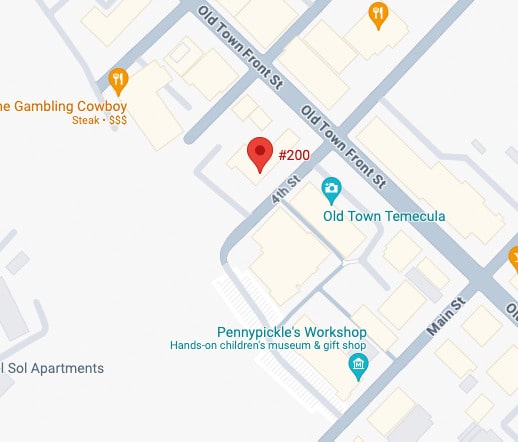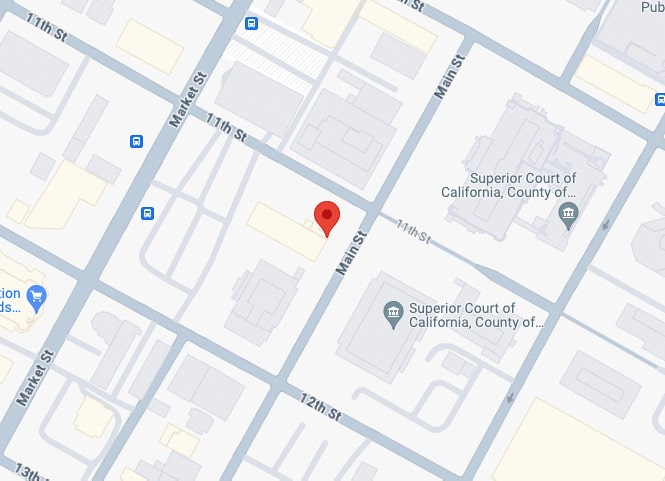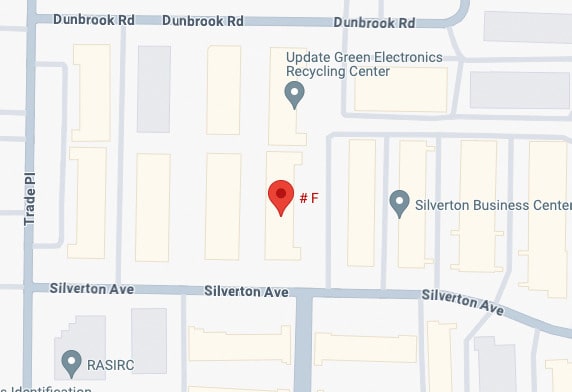The reality that children, too, commit crimes and can be arrested has still not hit most parents. That is why there is usually a lot of unpreparedness about what to do when a child is arrested and charged with a crime. The legal process when an adult is arrested is a little more straightforward. This is because adults can post bail right after arrest, enabling them to return home before trial and sentencing. But that cannot happen when a minor is arrested. The truth is that children do not have access to bail in California. The juvenile justice system is a little different. It helps to familiarize yourself with the legal process following an arrest to know what to do and not do when a loved one faces an arrest.
An Overview of the Juvenile Justice System
Children commit crimes just like adults. While most crimes minors commit are misdemeanors and infractions, some commit severe felonies like murder, burglary, and robbery. Even though the law protects children, juvenile offenders must go through the justice system like adult offenders. The only difference between the juvenile and adult criminal systems is that the former is more about treatment and rehabilitation, and the latter is more about punishment. The law advocates treating, rehabilitating, and reintegrating juvenile offenders into society. It gives them a second chance and minimizes their possibility of committing crimes as adults.
When a child commits a crime, the police arrest them like adult offenders. However, the arresting officer can release the minor with a warning if the offense is not severe and the child is only a first-time offender. However, if the juvenile is a repeat offender and the crime is a little serious, the arresting officer must take them through the required legal process. That includes detaining the minor and forwarding their case details to the prosecutor after booking. The prosecutor will file a petition against the child with a juvenile court. These processes happen very quickly and could be challenging for the parent to follow through unless they are familiar with the juvenile justice system.
In most cases, especially those involving lenient offenses, a juvenile offender does not go through the booking process and detention, which is the case with adult offenders. When an adult is arrested and booked into the police database, they are kept in jail and could remain there until a judge hears and determines their case. That is why the law allows adults to post bail for pretrial releases. If the court grants them a bail release, they will only return to the court on the case hearing and sentencing dates.
But that process is optional for minors since, in most cases, they are quickly released back to their parents. The arresting officer can issue a stern warning against reoffending and ensure that the parents understand the consequences their child can face if they reoffend. The law gives parents absolute authority to discipline and punish their children. When a juvenile offender is released to their parents, the police expect the parent to ensure that the minor is punished and warned against repeating the crime. In that case, the parents do not need to post bail to have their children released from police custody.
In most severe cases, an arrested juvenile offender must stand trial before a juvenile court judge to answer for their actions. However, the minor's trial differs significantly from adult offenders' trials in criminal courts. Juvenile court processes happen quickly to avoid detaining a minor or separating them from their parents longer than necessary. Here are the four typical methods a minor must go through if facing criminal charges:
The Detention Hearing
The police are not as quick to detain a minor after an arrest as they are with adult offenders. When an adult commits a crime, they must remain in police custody following an arrest until a judge grants them bail. The police will only release them once they pay the full bail as ordered by the judge.
But for children, the judge must first hold a detention hearing to determine whether to keep the juvenile offender in custody or release them to their parents. The first hearing must happen within 48 hours of the minor’s arrest. The judge will discuss the case at length and seek the opinion of the probation department on what should happen to the child before their case is heard and determined.
If the minor is not a danger to themselves or society, the judge can agree to release them back to their parents. But they will be under the close supervision of the probation department.
On the other hand, if the judge orders the minor to be detained, the detention facility where they will be held must be suitable for a child their age. In most cases, detention for juvenile offenders occurs in juvenile halls. However, the custody must be at most fifteen court days. The child will also be under the supervision of the probation department. The judge will order the department to provide the necessary services to ensure the minor returns home soon.
The Fitness Hearing
After the detention hearing, the judge will hold a fitness hearing to discuss how well or otherwise the minor fits in the juvenile justice system. That depends on the facts of their case and the minor’s age. Though most juvenile offenders are tried in juvenile courts, some criminal cases involving children are heard and determined in adult criminal courts.
If the case is not severe, the judge will skip this hearing. But if the minor has committed a serious or violent felony, the judge will hold a hearing. If the court concludes that the minor faces trial like an adult, the juvenile court will return the case to the prosecutor, who will file a case in a criminal court. After that, the minor's legal process will be the same as an adult offenders facing the same charges. It means the judge can hold a bail hearing for the child and grant them bail release if they qualify.
But if the minor’s case fits into the juvenile justice system, the judge will proceed to plan for an adjudication hearing.
The Adjudication Hearing
An adjudication hearing is similar to a trial in an adult criminal process. In this hearing, the judge will mention the charges the minor faces and the evidence against the minor. The prosecutor can present more evidence if they have anything against the child. The entire hearing is conducted before a juvenile court judge. There are no juries to study the evidence and conclude the case.
A minor is allowed to defend themselves in this trial. They, too, can submit evidence and call and interview eyewitnesses. They can have legal representation to ensure that no one violates their rights. The minor’s parents are also fully involved in the adjudication process.
If the evidence presented in court is insufficient and cannot support the minor’s petition, the judge will dismiss the case and release the child to their parents. But suppose the police or prosecutor has sufficient evidence that the minor committed the offense. In that case, the judge will dismiss the adjudication hearing and set a date for the final hearing.
The Disposition Hearing
This hearing is the same as sentencing in a criminal court. In this hearing, the judge will give the final verdict. If the court finds the minor guilty, the judge will give their judgment. Remember that the juvenile justice system is geared towards treatment and rehabilitation, not punishment. Thus, the judge’s sentence for the young offender will consider their specific needs.
The process must happen fast enough to avoid keeping the minor in custody longer than necessary. But remember that only a few juvenile offenders end up in juvenile detention pending adjudication and disposition hearings. The rest are released back to their parents. The judge mandates that the parent ensure that their child attends all court hearings without fail.
The juvenile justice system does not have a bail hearing to determine a minor’s suitability for bail release. It is because young offenders are not held in jails like adult offenders. If the judge orders a juvenile offender to be detained, they are held in juvenile facilities.
Possible Dispositions for Juvenile Offenders
Dispositions or penalties for juvenile offenders are not the same as for adult offenders. After the disposition hearing, the judge can still release the minor to their parents. However, the child will be under the supervision of the probation department. Additionally, the judge will give the child and their parents a set of conditions they must abide by throughout the probation period. These conditions are set according to the underlying offense and could include the following:
- Adhering to a curfew.
- Attending individual or group counseling.
- Attending school without fail.
- Paying restitution to the victim of their crime.
- Participating in community service.
If the minor violates the given conditions, the judge can order their rearrest. The judge will hold another hearing to determine the circumstances and consequences of the violation. Suppose they conclude that the minor can't adhere to the probation conditions or commit another crime while on probation. In that case, the judge can change their disposition and order their detention.
Sometimes, the judge sentences the minor to detention instead of returning them to their parents after the disposition hearing. But juvenile offenders are not detained in prisons and jails like adult offenders. Instead, they are sent to the following:
- Probation camps.
- Groups or foster homes.
- Juvenile halls.
- The State Division of Juvenile Justice.
After disposition, the minor must follow through with their sentence until the end, even after they become adults.
When Minors are Tried as Adults
If, during the fitness hearing, the judge finds the minor unfit to stand trial in a juvenile court, they will transfer their case to a criminal court. The entire process is called a waiver because the judge waives the protection the minor enjoys from a juvenile court. Most juvenile matters that a judge can waive are those involving serious crimes. The judge can also waive a case if the minor is a chronic offender.
Even though facing trial as an adult has its advantages, including constitutional protections, it has several disadvantages for a minor. For example, if found guilty, the child may serve time in an adult jail or prison.
In California, a juvenile offender must be 16 or older to face trial in an adult criminal court. Here are the circumstances that could result in your child’s case being referred to an adult court:
- If they face charges for a specific severe or violent-related felony,
- If they are older,
- If they have a lengthy juvenile record,
- If the previous efforts to rehabilitate the minor have been futile,
- If the child requires a prolonged youth-serving period to become fully rehabilitated.
If your child can stand trial as an adult, the prosecutor will ask the judge during the fitness hearing. They will support their request with facts and evidence. The judge can also initiate the process based on the case details. For example, if the minor faces severe charges like murder and is 16 or older, the judge can start the transfer process to ensure they face trial as an adult.
Once the prosecutor places the request or the judge initiates the transfer, the minor will be allowed to fight or support the transfer. They can have legal representation in this hearing. The prosecutor will start by demonstrating probable cause. The judge will then decide on the possibility of the minor receiving treatment and rehabilitation if they go through the juvenile justice system.
Here are some of the factors the judge can consider in making the final decision:
- The minor’s background.
- Their juvenile records.
- Their willingness to receive treatment and rehabilitation through the juvenile justice system.
If the judge transfers the minor’s case to an adult criminal court, their case will start from the beginning, as if the minor has just been arrested.
The Legal Process for Minors Facing Trials as Adults
If your child is to face trial as an adult, it is necessary to familiarize yourself with the court processes to ensure that everything runs smoothly for you and your loved one. Remember that once the juvenile court judge transfers their case to an adult criminal court, your child will start the legal process afresh. First, the prosecutor will file charges against them in court. The police could also detain them pending their first arraignment.
The first arraignment will be mostly about their suitability for bail and how much they must pay to obtain a pretrial release. Remember that while the juvenile justice system does not release bail for young offenders, minors could be eligible for bail if they face trial in a criminal court. But the judge will first consider the details of their case before granting or denying them bail. If your child is eligible for bail, they can come home with you pending trial and sentencing.
But whether or not the judge will grant them bail will depend on their criminal history and the details of their case. Criminal court judges often deny bail to chronic offenders who will likely offend while on bail. Judges will also deny bail to anyone facing charges for a serious or violent felony. If the minor is a danger to their community, it will be in the best interest of justice to keep them in custody until the conclusion of their case.
But legal representation could help you fight for a fair outcome in this hearing. An aggressive attorney can fight to ensure your loved one is granted bail release. If that happens, the judge will give conditions on how you must post bail and when you must attend court hearings.
The court gives you several options to post bail for a loved one. It could be in the form of cash bail property bonds or bail bonds. If you do not have enough money to post cash bail, you can find a reliable bail bondsman to post bail for your loved one. Bail bondsmen offer reliable, timely, and affordable services to people who need assistance. You will be required to pay a premium of about 10% of the bail, doubling the fee for the bail bond service.
Find a Reliable Bail Bondsman Near Me
Is your child facing criminal charges in Temecula?
Children, too, commit crimes like adults, though they do not go through the same court process after arrest. The juvenile justice system is a little different from the criminal justice system for adult offenders. Your loved one will not need bail if they face trial in juvenile court. This is because the police cannot detain a child after an arrest. Young offenders are often quickly released to their parents, who ensure they follow through with all juvenile court processes. But if your child will face trial as an adult, they could need bail for a pretrial release. That allows them to prepare well for trial.
We offer support, advice, and financial assistance to families that cannot afford bail for their loved ones. Our bail bond services at Justice Bail Bonds are reliable, timely, and affordable. Call us at 714-541-1155 to learn more about us.










